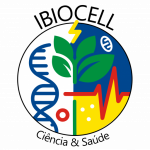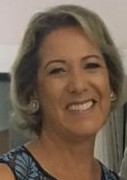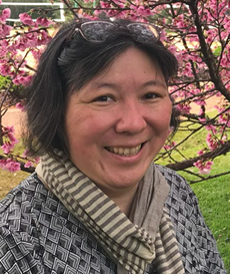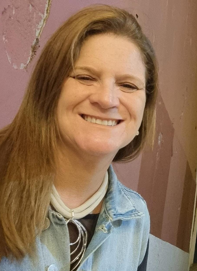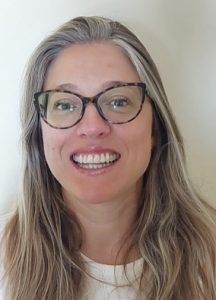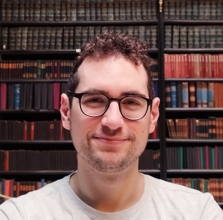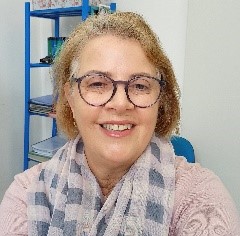2. Equipe Nacional/Comitê Gestor
Profa. Dra. Fátima Regina Mena Barreto Silva 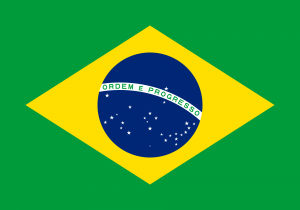
(Coordenadora)
Departamento de Bioquímica – Centro de Ciências Biológicas
Universidade Federal de Santa Catarina
http://lattes.cnpq.br/9710846032672593
https://orcid.org/0000-0002-1391-2354
https://ppgbqa.ufsc.br
Undergraduate in Chemistry License (UCPel/Brazil), Master and PhD in Biochemistry (UFRGS/Brazil) and Pos-doc at Université de UNICAEN/France. Member of the founding team in the Pharmacy: Pharmaceutical Drugs and Chemical Analyzes/Health Sciences and in the Biochemistry/Biological Sciences programs. Full professor at UFSC/Brazil. Coordinator of projects: Cooperation Program among UNICAEN (CAPES/COFECUB and CAPES/PrINT); Project among University of Guelph/Canada; Collaboration among Universidad Nacional de Colombia, Bogota; Collaboration among De Montfort University, Leicester, UK; International project with UFSC, Porto and Coimbra University/Portugal; project of international collaboration among Sorbonne Universités, Pierre et Marie Curie (2011-2012); international collaboration among University of California, Riverside (2000-2010); Fellowship student of Japan International Cooperation Agency, Japan. Invited Professor at UNICAEN/France. Associate Editor: Frontiers in Physiology and lead Editor Guest for several journals. More than 130 publications, 1 book organization and 9 chapters. Supervision completed: 24 Masters, 16 PhD, 12 pos-doc and more than 60 undergraduate students. As research develops studies in Pharmacy focused on the effect and mechanism of action of hormones, natural and synthetic compounds and toxicants related to diabetes and male reproduction fertility. The aim is identifying precise molecular targets (precision medicine) to point diagnosis strategy for specific pathologies and to the speed of drug development by using Clinical Electrophysiology Platform.
Profa. Dra. Daniela Ota Hisayasu Suzuki 
(Vice-coordenadora)
Instituto de Engenharia Biomédica (IEB-UFSC)
Departamento de Engenharia Elétrica e Eletrônica – Centro Tecnológico
Universidade Federal de Santa Catarina
http://lattes.cnpq.br/0304525853585205
https://orcid.org/0000-0001-6373-1677
https://electroporation.ufsc.br/
Bachelor’s degree in electrical engineering, master’s, and Ph.D. in biomedical engineering with a focus on experimental and numerical study of electroporation in cellular membranes. Since 2004, has been publishing scientific articles on electroporation and electrochemotherapy (treatment of cancer using electrical fields and chemotherapeutic agents). Supervised 5 Ph.D. and 16 master’s students in the field of electroporation and applications. Holds 2 patents (INPI BR1020190180978 and BR5120190021231) submitted in the area of electrochemotherapy. Projects approved by the Brazilian Space Agency and CNPq. Three awards for best articles from the Brazilian Society of Biomedical Engineering on electrical effects on cellular membranes. Has been teaching electrochemotherapy courses since 2013 and has trained over 150 veterinary oncologists in Brazil and Latin America. Studies mathematical modeling of ion channels in cells (e.g., Sertoli) and applies electrophysiology techniques to understand the effect of electromagnetic fields on biological membranes and cells.
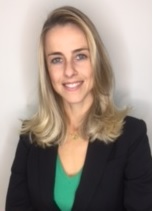
Profª. Drª Ana Paula Serafini Immich Boemo 
Departamento de Engenharia Química e Engenharia de Aliementos – Centro Tecnológico
Universidade Federal de Santa Catarina
http://lattes.cnpq.br/3578767445836034
https://orcid.org/0000-0001-6927-8041
https://posenq.posgrad.ufsc.br/
Undergraduate in Chemical Engineering from the Federal University of Santa Maria (UFSM/Brazil)), a master’s and a Ph.D. in Chemical Engineering from the Federal University of Santa Catarina (UFSC/Brazil). In 2011, completed a Postdoctoral Fellowship in Chemical Engineering at the Universitat Politècnica de Catalunya (UPC/Spain)), Spain, with a focus on the production of biomaterials for medical applications. In 2013, concluded a Postdoctoral Fellowship at the University of São Paulo (USP/Brazil) in the area of polymeric biomaterials and the production of biological substitutes, developing in vitro epithelial tissue through co-cultures of fibroblasts and keratinocytes. Currently, she is an Assistant Professor (C4 level) in the Department of Chemical Engineering and Food Engineering at the Federal University of Santa Catarina (UFSC/Brazil) and the technical lead of the Cell Culture Laboratory at the Biological Engineering Laboratory (LiEB-UFSC/Brazil). Permanent member of the Graduate Program in Chemical Engineering (Capes 7), supervising undergraduate research, master’s, and doctoral students in the field of Regenerative Medicine. Her main research areas include: Development and Production of Polymeric Biomaterials; Extraction of Cellular Biostimulants; Skin Regeneration; Biomedical and Tissue Engineering; and Drug Delivery Systems.
Profa. Dra. Bárbara Ogliari Martins Taques 
Instituto Federal de Santa Catarina – Campus Joinville
http://lattes.cnpq.br/2798567787175687
https://orcid.org/0000-0003-1919-8531
Graduate at Engenharia Elétrica from Federal University of Santa Catarina (1996), master’s at Electric Engineering from Federal University of Santa Catarina (1999) and a PhD in Electrical Engineering and Industrial Information Technology from the Federal Technological University of Paraná (2023)..She is currently a professor of technical and technological education at the Federal Institute of Education, Science and Technology of Santa Catarina. Has experience in Biomedical Engineering, focusing on Biomedical Engineering, acting on the following subjects: electronic instrumentation, digital signal processing, signal analysis and mathematical modeling.
Profa. Dra. Carine Royer 
Laboratório de Farmacologia Molecular
Universidade de Brasília – Campus Ceilândia
http://lattes.cnpq.br/4283582712026664
https://orcid.org/0000-0002-2887-1882
Dra. Carine Royer has a degree in Clinical Analysis Pharmacy from the Federal University of Santa Maria (2003), a master’s degree in Pharmacy from the Federal University of Santa Catarina (2005), and a Ph.D. in Sciences with a focus on Pharmacology – Experimental Endocrinology from UNIFESP (2011). They conducted postdoctoral research in Molecular Pharmacology at the University of Brasília (2012). Currently, they are an associate professor at the Faculty of Ceilândia (FCE)/UnB. Their research interests lie in the field of clinical electrophysiology applied to the male reproductive system.
Prof. Dr. Guilherme Brasil Pintarelli 
Departamento de Engenharia de Controle, Automação e Computação (CAC)
Departamento de Ciências Exatas e Educação (CEE)
Universidade Federal de Santa Catarina – Campus Blumenau
http://lattes.cnpq.br/6921758272697669
https://orcid.org/0000-0002-6920-0049
https://gpintarelli.com
Has a graduate degree (2016), master’s degree (2018) and Ph.D. (2022) in electrical engineering at UFSC, Brazil. Also, has an internship period at Brunel University, UK (2014-2015). He worked as a hardware and product development engineer (physiological signal sensors and industrial sensors). He is a Full Professor in the Department of Control, Automation and Computer Engineering at UFSC Blumenau, and a Collaborating Professor in the Postgraduate Program in Electrical Engineering at UFSC (PPGEEL). He has experience with smart sensors; pulsed energy and pulsed electric fields (PEF); electrical dispersion; bioimpedance; instrumentation; product and service design; embedded systems; industrial electronics; signal processing; innovation and intellectual property. He studies cellular manipulation and deactivation with pulsed electric fields and responses of biological systems in the frequency spectrum.
Profa. Dra. Rozangela Curi Pedrosa 
Departamento de Bioquímica, Centro de Ciências Biológicas
Universidade Federal de Santa Catarina
http://lattes.cnpq.br/5839835671483987
https://orcid.org/0000-0003-1732-8363
https://ppgbqa.ufsc.br/o-programa/corpo-docente/rozangela-c-pedrosa/
Graduate in Pharmacy-Biochemistry in UFMG. MsC. in Toxicology in USP – USP. Ph.D. in Pharmacy-Biochemistry in Université de Montpellier II-France. Pos-Doc in Biochemistry Toxicology in Université Catholic de Louvain-Belgium and in Computational and Structural Biochemistry in Universidade Nova of Lisboa. Supervisor Master/PhD programs in the programs of Biochemistry: Biochemical toxicology and Computational biochemistry (since 2008). Full professor at UFSC/Brazil. Coordinator of the following projects: International Cooperation Program among Université Catholique du Louvain and UFSC (CAPES/FNRS) and International Cooperation Program among Universidade Nova de Lisboa-UNL and UFSC (CAPES/FCT). Director of Intellectual Property and Technological Innovation at UFSC (2011 to 2016), Editor Guest of Frontiers in Oncology and Frontiers in Bioinformatic. More than 110 international publications and 9 chapters of books (Elsevier, EDUFOP, SETAC, Arte & CiênciaVillipress). 4 patents and 1 software registration filed with INPI, 1 patent granted in the USA and 1 PCT filed in the European Community. Supervision completed: 28 Masters, 20 PhD, 5 pos-doc and more than 28 undergraduate students with CNPq fellowship for Scientific Initiation. As research experience and Current research interests: Biochemistry and Molecular Biology of Cancer , Computational Biochemistry, Structural Biology, Cancer drug research (natural and synthetic products). Lead the research group Biochemistry of Macromolecules, Metabolism and Toxicology at CNPq/Brazil since 1996.
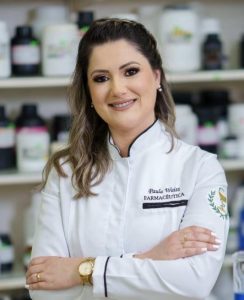
Paula Waiss Zanusso Bunick, Master’s student, FAPESC scholarship 
(Representante dicente)
waisspaula@gmail.com
https://orcid.org/0000-0002-9932-7980
https://lattes.cnpq.br/8261967526547240
Master’s student at the Postgraduate Program in Biochemistry at the Federal University of Santa Catarina (UFSC). Pharmacist at the University of the Campanha Region (URCAMP), linked to the project Non-genomic effects of pyriproxyfen on Sertoli cells of the TM4 lineage. Specialist in oncology pharmacy at Centro Universitário Venda Nova do Imigrante, (UNIFAVENI). She worked as an oncological compounding pharmacy assistant at the Chemotherapy Unit at Hospital Santa Casa de Caridade de Bagé (RS) and as an intern at the Health Department in the city of Candiota (RS). He participated as a member in the implementation and development of the Candiota Medicinal program, which introduces medicinal plants from the Unified Health System (SUS) into society. She also interned at the pharmacy of the municipality’s

